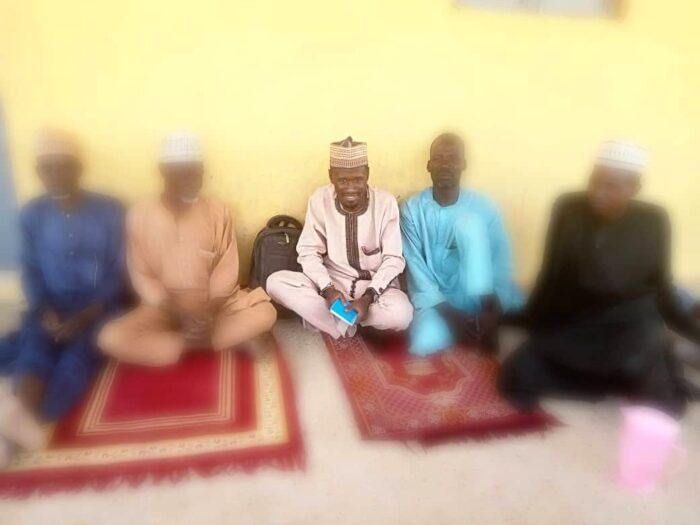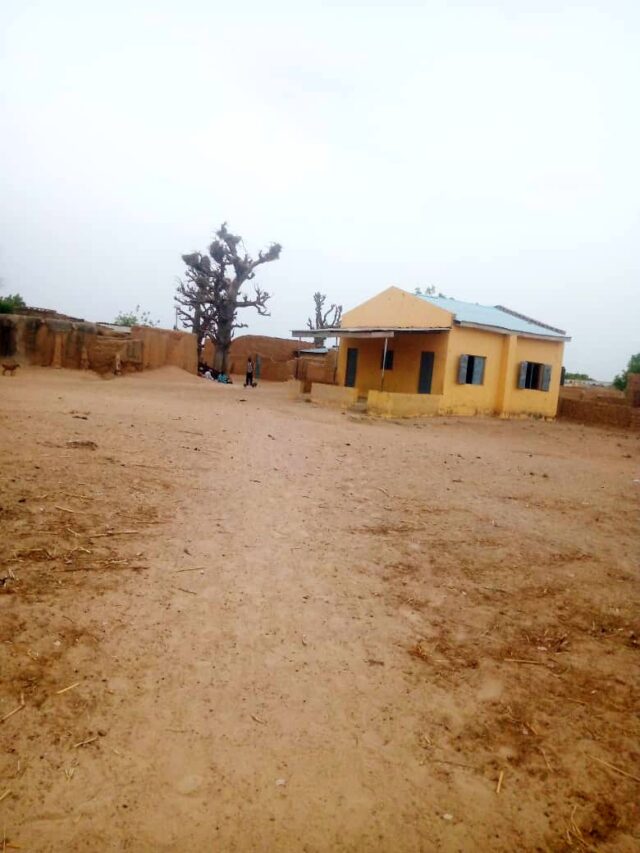National Issues
Reaching Out To The Hard-to-reach Areas And Hearing From Within! -By Ismail Musbahu
The overlapping activities of these companies and their exhibiting attitudes to the community members tell them a lot that their country is under siege! Amidst this worry, a greater sense of suspicion is recounted on the so-called ‘visiting white-men’ (possibly the ethnographic researchers) coming to them all the ways across the rivers and hot sandy forests, from far and near, asking them unrelenting questions with unavoidably unceasing search for answers! “There must be a reason beyond just research”, the curious among them queried!

Yesterday, it was sunny and hot! Through the sandy bush, I rode into the hot arid zones of Katsina, along the border between Nigeria and Niger Republic. The heating wind of the weather was intensely fierce and unfriendly. I got interesting information from victims of [and about] rural criminality, kidnapping, border crime, disruptive social insecurity and increasingly blatant trashing of norms that ensued and manifested among the unruly, violent, drunkard, and more horribly chaotic youths.
Alongside the pathways leading to the villages ransacked and still remain ungoverned, the racket of criminal gang roasting and eating bush meats, drinking all sorts of blended herbs and beers could hardly be unnoticed, and the elation crows unabated! Many factors are responsible for making the children grow violent, nurture terror and resort to haughty reactions. One is the complete leadership failure from the Nigerian state, the genesis of which was corruption and injustice at virtually all levels and practically by all the state and local Courts and Police. This system widens the space for normative conflicts to escalate and turn violently reactionary.

Allegations and counter allegations continue to wake up the sleeping dogs of historically deep-seated enmity between and among members of the victim communities. Growing circumspection and mistrust have buried the hitherto existing social contract and the bond of the kinship system has been jeopardized. Increasing fears and hatreds turn the kith-and-kins mere opposing individuals. The society which was before now built on the kinship system has eventually become individualistic and confused. Harmony was replaced by chaos and violence, as well as rural charity and hope by terror and criminality! The bad, corrupt and unfaithful leadership of the Nigerian government has ensued a culture of corruption leading to prolonged injustice, unfair and shifty prosecution of suspects and criminals.
The attitudes of the local Courts and Police has caused a devastating panic not only in crippling the constitutional power of the judicial administrative chains in discharging their functions but more terribly, in the manner by which victims of corruptly unjust government and ill-conceived administrative system, perceive secular government and keep questioning the purpose of its existence. Even more dangerous is the way these attitudes keep dragging into the minds of these youths, seemingly unsafe questions—as to why a government that is not ordained by Allah—neither does it operate on the principles codified in the holy Quran could emerge to govern them. The image of a secular government and its well-dressed (white-collar) functionaries has already been ugly prejudiced. It lacks value and relevance in all its manifestations to the extent that even brave journalists and academic researchers are only able to reach out to those communities in disguise—wearing ragged and faded muftis—as much as they imitate the identities of the villagers!
Whereas the foregoing note is a common knowledge among Nigerian academic researchers (especially community historians), my field trips focus on a somewhat neglected episode, ‘how the floral, faunal and mineral rich in this part of West Africa raises the tide of insecurity in the Northwestern part of Nigeria.’ It seeks to ascertain the pre-existing notions and powerfully prevailing hypothesis widespread among the rural population about the nature of resource exploitation by competing interests, both nationally and internationally. This idea is built on the belief that there has been a conspiracy among the parties involved to evict, by brutal force, members of these rich and productive localities. The fundamental question is ‘what frustrates the possibilities to turn these areas into very well-secured government-owned forest reserves while at the same time supporting and encouraging urban and social integration, possibly by facilitating access to housing, infrastructures, industries and more employment opportunities? Yet responses would hint on the affirmative, three outlined obstacles may hinder such a possibility and according to the local population, this is a grand conspiracy already in existence between the interested ‘groups’, the Nigerian government and the International Community.
To their belief, more so a ‘fact’ on their eyes, is the attestation that the interest groups involve seemingly ‘unidentified’’ (as opposed to ‘unknown’) politicians and businessmen including their local militant gangs whom they employed and armed to stand the bitter reality of the cut-throat-competitions on the Zamfara gold mines for instance, as well as on the arable (floral and faunal) lands. Secondly according to them, is the Nigerian government which, as they alleged, conceded the ‘agreement’ and ‘legally’ allowed the international community (possibly its neo-colonial master at stake) to massively exploit with 0-restraints, the floral, faunal and mineral deposits of these areas. Their agents, the communities believe, are locked up in the licensed foreign multinationals including companies doing road works and building rail lines.
The overlapping activities of these companies and their exhibiting attitudes to the community members tell the latter that their country is under siege! Amidst this worry, a greater sense of suspicion is recounted on the so-called ‘visiting white-men’ (possibly anthropologists and ethnographers) coming to them all the way across the rivers and hot sandy forests, from far and near, asking them unrelenting questions with unceasing search for answers! “There must be a reason beyond just research”, the curious among them queried!
However, if all these were mere narratives, unpopular as they may be taken lightly, the remarkable change in the scale and intensity of such exploitation from what was perceptibly ‘legal’ and ‘regulated’ to what is competitively large, ‘de-regulated’ and ‘illegal’ obviously hinted at.
Ismail wrote from Katsina.

















